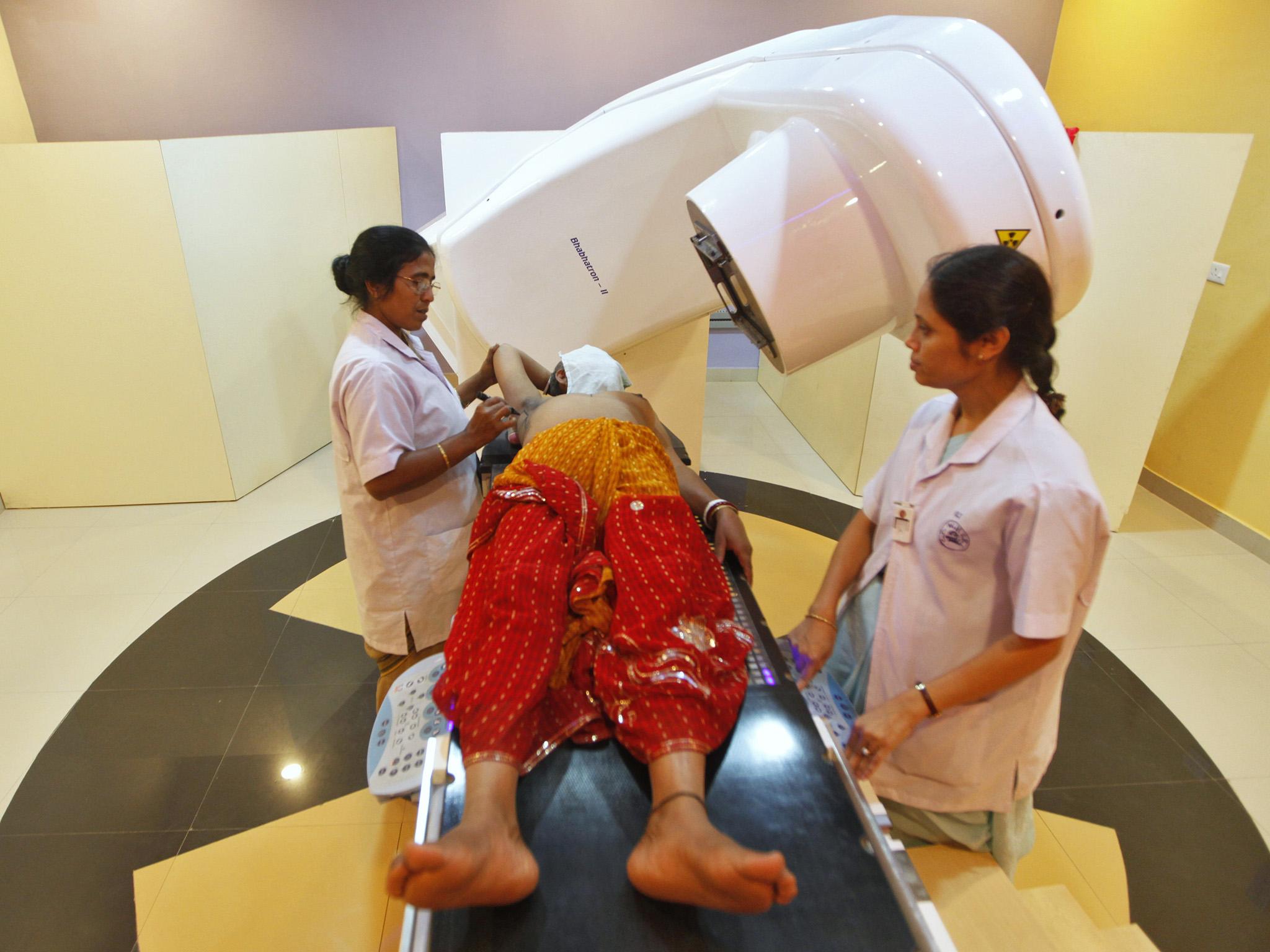Why confronting breast cancer is crucial to India's economic development
Judith Fletcher-Brown looks at how the Westernisation of Indian women puts them at risk of developing the disease

Your support helps us to tell the story
From reproductive rights to climate change to Big Tech, The Independent is on the ground when the story is developing. Whether it's investigating the financials of Elon Musk's pro-Trump PAC or producing our latest documentary, 'The A Word', which shines a light on the American women fighting for reproductive rights, we know how important it is to parse out the facts from the messaging.
At such a critical moment in US history, we need reporters on the ground. Your donation allows us to keep sending journalists to speak to both sides of the story.
The Independent is trusted by Americans across the entire political spectrum. And unlike many other quality news outlets, we choose not to lock Americans out of our reporting and analysis with paywalls. We believe quality journalism should be available to everyone, paid for by those who can afford it.
Your support makes all the difference.Breast cancer is a growing epidemic in India. It could kill 76,000 women a year by 2020, according to a recent study. It claimed more than 70,000 lives in 2012. At the heart of the issue is the country’s rapid economic development, which has made Indian women more susceptible to the disease, without building the infrastructure to prevent and detect it. But the good news is that boosting breast cancer awareness and encouraging early detection could play a significant role in reducing it.
India’s rapid economic expansion has it forecast to become the world’s fourth largest economy by 2020 and set to surpass China as the world’s fastest growing economy. This feat of development has lifted millions out of poverty. But economic growth has brought with it other challenges – including breast cancer.
Breast cancer is the most common cancer in women worldwide and represents 25 per cent of all cancers in women. In fact, there appears to be a link between breast cancer and development. Developed economies in the West such as in North America and Oceania rank at the top of the rates of incidence.
So, India’s development brings with it new health risks for women. In Western countries, breast cancer incidence increases with age, whereas in India, the rate of incidence seems to affect the demographic of urban working women the most (China is experiencing a similar trend). The blame for this catastrophe seems to lie with India’s economic development and rapid urbanisation.

Modern day India’s booming economy has led to rapidly expanding numbers of women in education who go on to pursue careers. This has led to the Westernisation of Indian women in a way that increases their risk of developing breast cancer: urban Indian women who work start having sex later, have fewer children and breastfeed them less than their rural counterparts – all factors which increase the risk of developing the cancer, over a lifetime. These women also tend to have a more Western diet, which leads to obesity, another factor that increases the risk of breast cancer.
To make things worse, a recent study showed that these women seek medical care extremely late – despite the fact that they are better educated and, to a certain extent, have greater economic independence. The reasons for this appear to be poor awareness of the early indicators of breast cancer and a lack of knowledge about how to self-examine. They also have limited access to helpful information. Altogether this results in a delay in seeking care and diagnosis.

My research with colleagues Vijay Pereira and Munyaradzi Nyadzayo also suggests that cultural issues may be a factor in why women do not access health services. Some are reluctant to consult male doctors. Many women are also dependent on other family members to get the required medical help because breast care is still a culturally taboo subject and rarely discussed. This often results in delays in seeking help.

There are both economic and moral reasons to address this issue. Urban, working women – the group that is most at risk of breast cancer – play a significant and growing role in India’s burgeoning economy. Many are employed in new technology and telecoms industries that have sprung up as a result of foreign direct investment from Western firms.
India also has a larger economic value at stake from advancing gender equality than other emerging economies. A report by financial services firm McKinsey found that employing more women in the workforce would add $2.9 trillion (£2.2 trillion) to the country’s annual GDP by 2025. So if a healthy female Indian workforce is a strategic advantage in sustaining its thriving economy, the Indian government has another reason to take ownership of women’s healthcare.
Legally the Indian Constitution guarantees everyone’s “right to the highest attainable standard of physical and mental health”. Further, an Indian citizen’s right to health, is integral to the right to life, which is also enshrined in the constitution. So the government has a legal obligation to provide health facilities.

By changing the current health policy to include early planning of breast cancer awareness campaigns the Indian government could initiate an important strategy to reach women at risk. Our research into the issue shows the government should invest in community nurses because they are more effective than national advertising campaigns. Through their local community knowledge they gain the trust of husbands and fathers in overcoming cultural barriers to promote self-examination and encourage the women in their families to seek early diagnosis.
Judith Fletcher-Brown is a senior lecturer at the University of Portsmouth. This article first appeared on The Conversation (theconversation.com)
Join our commenting forum
Join thought-provoking conversations, follow other Independent readers and see their replies
Comments